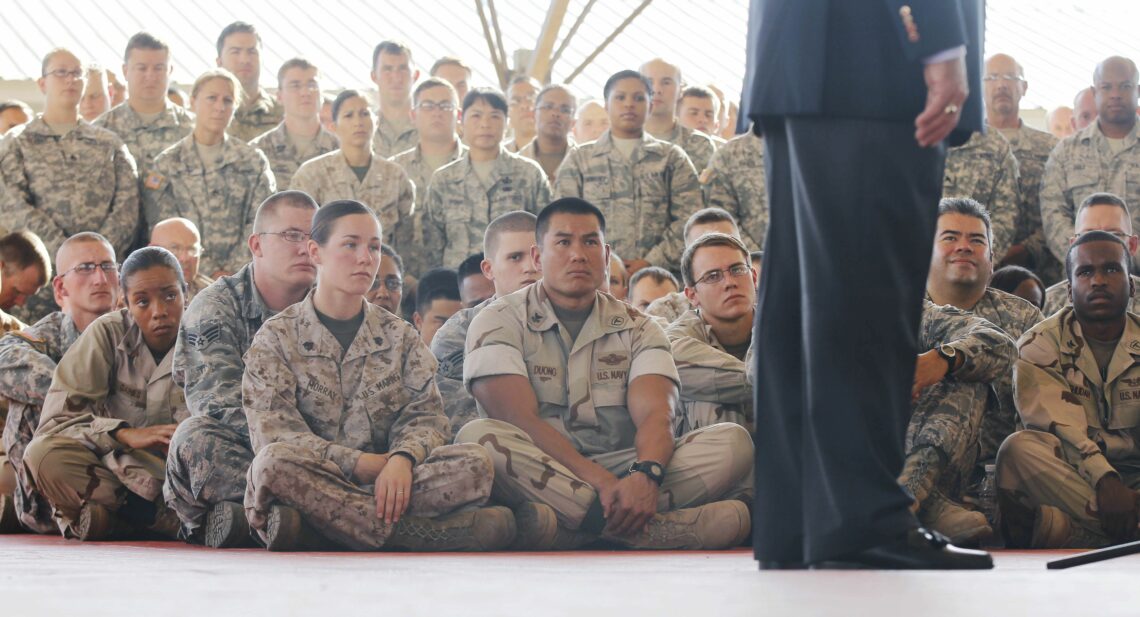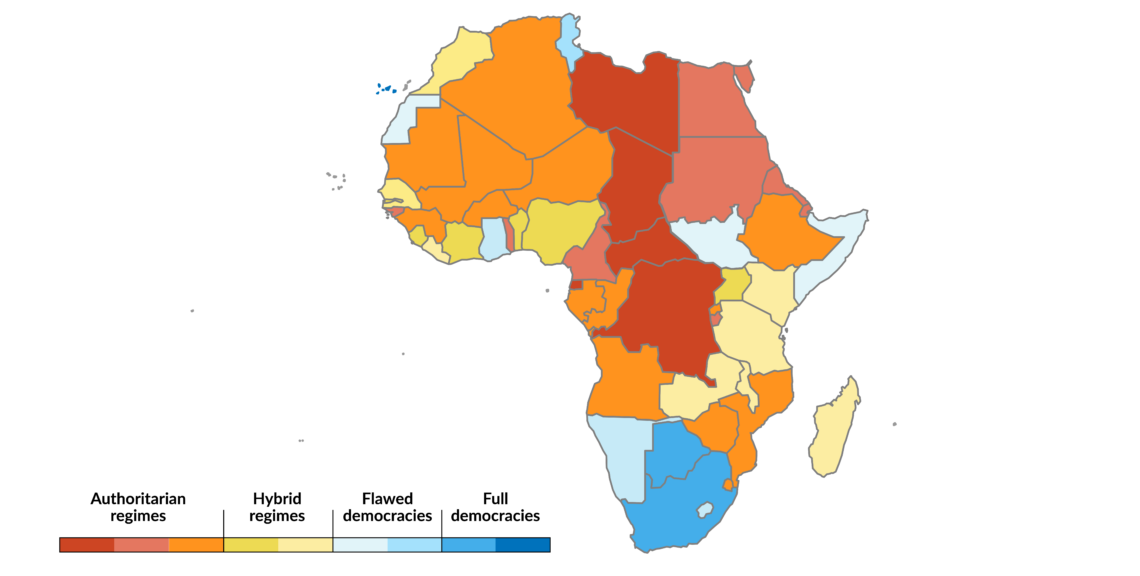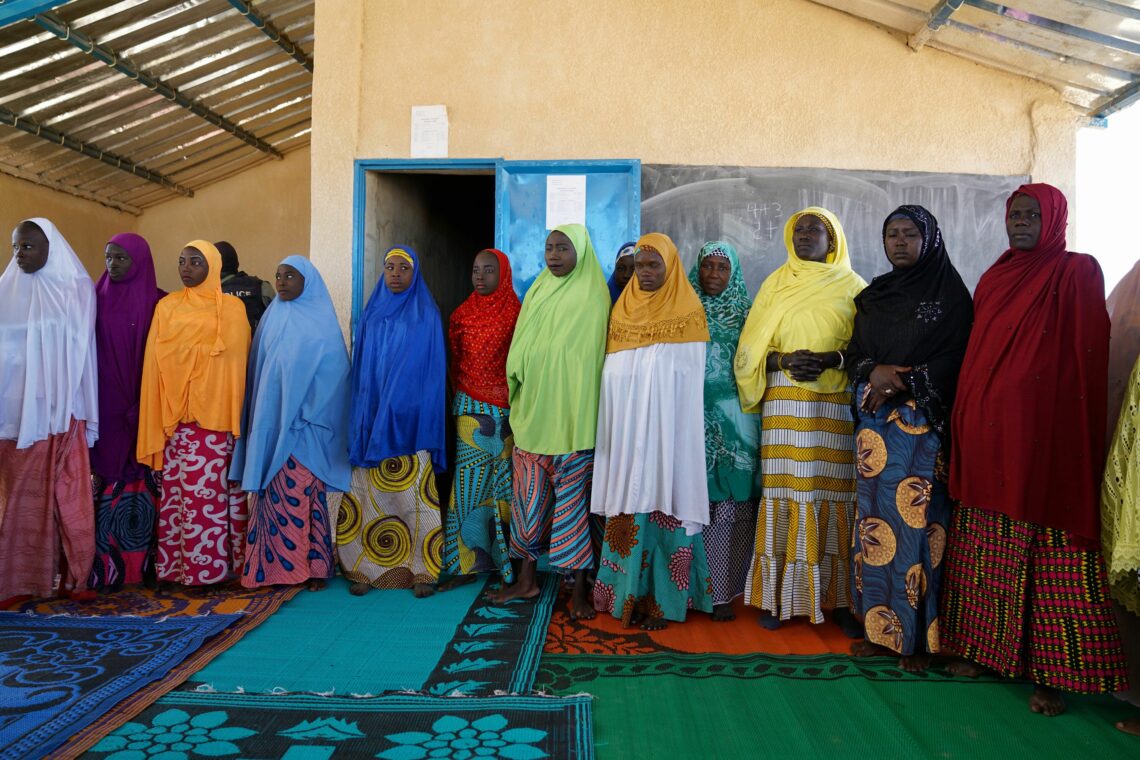Biden’s strategy for Africa
Joe Biden’s strategy for Africa focuses on promoting democracy and clean energy. However, given the unstable security situation, the United States could find itself under pressure to increase its military presence on the continent.

In a nutshell
- The Biden administration wants to promote democracy
- Authoritarianism is on the rise in Africa
- The U.S. may have to settle for less ambitious goals
Africa has been a low priority for the United States under successive administrations. The main tools of engagement have been “presidential initiatives.” The most successful was the President’s Emergency Plan for AIDS Relief (PEPFAR), launched by George W. Bush. Later, while China was expanding its diplomatic, economic, and military presence on the continent, the Obama administration fell short of expectations.
During the Trump administration, despite important trade and investment initiatives, the relationship with the continent was affected by diplomatic incidents. President Joe Biden, unlike his predecessor, has been optimistic and relatively clear about the future of U.S.-Africa relations. However, domestic challenges and deteriorating political and security prospects in Africa may challenge Washington’s intentions.
Priorities
Climate change, democracy and health are among the most prominent issues under discussion. On the climate front, differences between the Trump and Biden administrations are significant. This emphasis will increase the leverage of African countries. The continent is considered to contribute the least to global warming while being disproportionately affected by it, and it is seen as an essential region to implement the energy transition. If – and this is a big if – the U.S. Congress backs the president’s intention to triple climate change adaptation funding by 2024, African countries could substantially benefit.
Democracy occupies a salient yet problematic place in President Biden’s agenda for Africa.
Moreover, in the case of Africa, Mr. Biden’s promises of “clean energy revolution and environmental justice” are expected to go hand in hand with pressures for debt relief. Health is also becoming an important field of cooperation and one where the U.S. is trying to challenge China’s influence through multilateral forums and initiatives like the World Health Organization and Covax. Besides rejoining the latter, President Biden has also reversed Mr. Trump’s antiabortion “gag rule,” a decision widely praised by the aid sector.
Democracy occupies a salient yet problematic place in President Biden’s agenda for Africa. Facing daunting polarization at home, it is unclear how this administration will promote democratic rule in a continent where authoritarian governance is on the rise. The reality on the ground will likely challenge Washington’s democratization ambitions. Like after the Cold War, the U.S. expects to increase cooperation with civil society actors in African countries, but dilemmas will emerge between short-term security imperatives and long-term potential democratic gains.
Facts & figures

Across the continent, elections expected to take place in 2021 and 2022 will represent critical tests for Washington’s rhetoric on democracy. In some of them, results will likely be contested by the opposition and raise concerns about freedom, fairness, and transparency. The 2021 presidential elections in Somalia and parliamentary elections in Ethiopia may lead to chaos and instability. In Sudan, the fragile agreement between the military and the civilian opposition suggests that the general elections of December 2022, which are expected to mark the end of the transitional process, will be a critical juncture. The Biden administration will have to deal with postelectoral instability and authoritarian leaders – such as Uganda’s Yoweri Museveni – who took power in dubious electoral processes.
Critical issues
Beyond the official rhetoric, three main issues will prove critical, not only for the future of Africa and U.S.-Africa relations, but also for American leadership in world affairs.
The first is competition with China. At the recent G7 meeting, President Biden announced his Build Back Better World (B3W) plan, an infrastructure financing mechanism for low and middle-income countries, to be led by the private sector. The strategy represents a direct challenge to Beijing’s Belt and Road Initiative. Whereas this plan may be difficult to implement, the U.S. disposes of specific tools – more modest yet perhaps more effective – to counteract Beijing’s economic influence in Africa. Under the 2018 BUILD (Better Utilization of Investments Leading to Development) Act, for example, default protection for U.S. investments in infrastructure projects in developing countries has doubled to a total of $60 billion.
Africa has become the front line of the war against terrorism.
The second is security. African operations represent only around 0.3 percent of the $700 billion defense budget. The main platform for security cooperation is the U.S. Africa Command (AFRICOM). The number of American personnel in Africa is estimated at 6,000 – half of them based in the Camp Lemonnier base in Djibouti.
Africa has become the front line of the war against terrorism as old and new groups expand their operational capacity in the Sahel, the Horn of Africa, and the Swahili Coast. In this case also, reality does not match the official discourse. One of the few similarities between the Trump and the Biden campaigns was the pledge to end American involvement in “endless wars.” Somalia, for example, where chronic instability and state fragility coexist with the terrorist threat posed by al-Shabaab, is home to one such war. Before leaving office, in December 2020, President Trump ordered the withdrawal of 700 American troops from Somalia. The U.S. played a critical role in the country’s security by providing training to the Somali army and conducting effective air strikes against al-Shabaab targets.

The present political and security situation is dire. Acting president of Somalia, Mohamed Abdullahi Mohamed (also known as Farmaajo) has announced the delay of elections, and al-Shabaab has regained its operational capacity and recently carried out attacks against military and civilian targets. President Biden has not reversed his predecessor’s decision but announced the deployment of special troops to Kenya and Djibouti. The withdrawal, combined with the decision to halt drone strikes outside war zones, may increase the operational reach of al-Shabaab, thus perpetuating the vicious cycle of terrorism and political instability.
In Mozambique, the Biden administration supports the army in its counterterrorism efforts and has designated several groups in the region as foreign terrorist organizations. However, the U.S. strategy for West Africa is unclear. American forces are estimated at around 1,000 troops. The region is going through a period of destabilization and uncertainty.
The U.S. still plays an important security role on the continent, but Beijing now has a significant military footprint there as well. To preserve its economic interests, China has intensified cooperation with the African Union on security matters, joined anti-piracy efforts along the East African coast, increased the export of surveillance technologies to authoritarian regimes and, in 2018, launched the Forum on China-Africa Cooperation.
A third critical aspect is economic collaboration. The Trump administration focused on reinforcing trade and investment by creating the U.S. International Development Finance Corporation and the launch of the Prosper Africa Initiative; both are expected to remain in place. The new administration is likely to favor a multilateral approach to trade through the African Continental Free Trade Area (AfCFTA) and impose conditions relating to climate change and democracy.
Scenarios
Two matters will define the future of U.S.-Africa relations. The first is how much the foreign policy of the Biden administration will prioritize Africa. The second is whether policy implementation will reflect the official discourse. Three main scenarios must be considered.
Under a first and most likely scenario, Africa will remain a low priority for Washington. This would result from both domestic and international constraints. Domestic challenges, such as deep political polarization and fragile economic recovery, will take center stage. Additionally, American policymakers will invest diplomatic, economic and security resources in containing China within Asia, but not beyond. Further instability in the Middle East could also compromise security engagement in Africa.
The ambitious B3W program will face multiple obstacles. While containing China is certainly a priority for the U.S., the same is not true for the international community. Also, the implementation of grand multilateral initiatives is often compromised by poor coordination and inefficiency, as was the case with the Covax initiative. And it remains unclear who will foot the bill for these lofty aims.
Under a second, slightly less likely scenario, U.S. engagement with Africa will increase, although the Biden administration will be challenged. Hopes to disengage from protracted armed conflicts will collide with the need to increase military cooperation with countries in West Africa and the Sahel. With France retreating, the U.S. could be pressured to move the headquarters of AFRICOM into the continent. This scenario would result from rising political instability in regions and countries like the Sahel, Ethiopia, Somalia and Sudan. Recent events, such as the appointment of Jeffrey Feltman as special envoy for the Horn of Africa, or Secretary of State Anthony Blinken referring to “acts of ethnic cleansing” in Western Tigray, suggest that Washington wants to play an active role in the crisis. However, faced with the possibility of war and territorial disintegration, the Biden team may have to make difficult choices between security and democracy, and risk losing some of its key allies in the region.
Under a less likely scenario, the Biden administration could successfully implement its Africa strategy by coordinating with actors like the EU, and by promoting investment, trade links and people-to-people cooperation. Considering the increasing relevance of African countries in organizations like the General Assembly of the United Nations or the World Trade Organization, this scenario could lead to a recalibration of the global balance of power, favoring U.S. interests in the mid to long term. However, this would entail a certain degree of stability in regions like the Horn of Africa and the Sahel.







